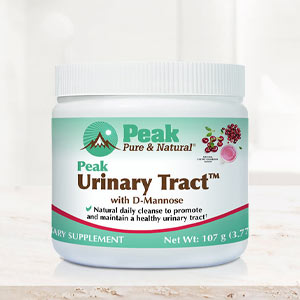Menopause is defined as “the permanent cessation of menstruation due to the loss of ovarian function.” Pretty dry and underwhelming description considering the MASSIVE changes a woman’s body goes through as part of this transition.
Given that this is a normal physiologic process and not a disease, menopause is supposed to be something women just endure and move beyond. But if you’ve been through it yourself or are in the midst of “the change,” you’ve probably realized that nothing about this process feels even remotely normal!
That is, unless you think hot flashes, night sweats, mood changes, sleep disturbance, vaginal dryness, urinary urgency and incontinence, weight gain, decreased libido, thinning hair and skin, memory and concentration problems, joint and muscle pain — not to mention heart palpitations and out-of-nowhere high LDL — are all normal!
I don’t typically venture outside of conditions that I manage. I’m a cardiologist. I deal with chest pain and EKGs. But I felt compelled to write this blog series because I continue to see so many female patients suffering with many of the symptoms related to menopause while being denied — or fearful of — a proven life-enhancing intervention. All based on faulty data.
I’m talking about hormone replacement therapy (HRT).
You’ve probably heard the warnings: It causes breast cancer. It’s dangerous. It does more harm than good. These statements have become medical dogma. But they are outdated, oversimplified, and in many cases — flat-out wrong.
Why HRT Deserves a Second Look
If you’re a woman navigating perimenopause or menopause, what you’ve been told about HRT — or what you think you know about HRT — could be standing between you and a dramatically better life.
This blog series is meant to give you the knowledge you need to not only help yourself through this time (and beyond) but also understand a treatment option that is out there. So that you can have a more informed conversation with your care provider.
To be clear — I am NOT advocating that every woman should go on HRT. But every woman should at least be given the opportunity to determine for themselves if it is right for them.
The Whole-Body Impact of Sex Hormones
First, here’s something really important you need to understand: Sex hormones (estrogen, progesterone, testosterone) don’t just have roles in reproduction and sex drive. Receptors for these hormones exist all over our bodies! Not surprisingly, menopause-related whole-body reductions in sex hormone levels have far-reaching effects.
Hormones and Bladder Health
One organ impacted by those far-reaching effects is the bladder. It happens to be very hormone-sensitive. And not just in terms of maintaining urinary continence. When estrogen levels decline, the microbiome of the bladder and vagina changes, making postmenopausal women far more susceptible to urinary tract infections. Indeed, about 20% of women over age 65 will develop a UTI, with close to 1/3 of these experiencing recurrent infections.
Hormones and Bone Loss
The skeletal system is a major casualty. In the absence of estrogen, women can lose as much as 20% of their bone density in the first 5 years post-menopause, with bone loss slowing down to about 1% per year thereafter. As a result, one in two women over age 50 will experience an osteoporosis-related bone fracture. This is incredibly serious — a hip fracture can be a terminal event. Close to 30% of hip fracture patients will not survive one year. And even if a woman makes it past that, the odds of her getting back to prior levels of activity are low.
Hormones and Brain Function
Brain? The risk of developing dementia and Alzheimer’s is significantly higher for women. The role of sex hormones is not fully worked out here, but even in the shorter term, sleep disturbance can become a huge issue affecting mental clarity. Estrogen and progesterone help drive circadian rhythms, and the wild fluctuations in their levels during perimenopause can do a number on the sleep cycle. Plus, it’s hard to sleep when you’re drenched in sweat.
Hormones and Heart Disease
As a cardiologist, I see this in my practice almost daily. Heart rhythm disturbances become more common around menopause, probably due to a combination of factors — especially sleep disturbance. Fortunately, most of these rhythm issues are benign. But that doesn’t mean they feel good! Cholesterol profiles almost universally get worse as LDL receptors become less active. As a result heart disease risk accelerates rapidly in postmenopausal women, reaching par with men of equal age about 10 years post our hormonal upheaval.
Menopause-Related Impact on Life Quality
Add vaginal dryness and loss of libido and you have a marked decline in quality of life — right around the halfway point in women’s lifespans.
These may all be “natural” consequences of changes in hormone levels, but are we just supposed to sit back and accept all that?
Would MEN accept all that??
Coming soon: HRT and where it all went wrong.
Read full article here




